A familiar pattern
Quite popular with quilters and pattern companies.
Accuquilt asked me to talk about their cutting die for Goose Tracks yesterday.
Block dated 1900
Goose Tracks was published as a name for the nine-patch by the
Ladies' Art Company in the 1890s.
That St. Louis pattern company often copied designs from other periodicals.
Maybe redrafting this one from the Hearth & Home group
of magazines, gathered in a catalog under the name of Clara Stone.
Accuquilt asked me to do a few minutes of quilt pattern history to celebrate the return of the Goose Tracks die. My first question: How Old Is The Pattern? It seems like a classic going back to the mid-19th century when quilters were exploring new ideas in geometry, the kind of pattern that got handed around before commercial companies began selling and naming patterns.
The National Museum of American History has
an example that the family thought made 1850-1875.
I doubt it's that old though. Fabrics & set style look post 1880.
Goose Tracks, fabrics look to date from 1900-1925.
When I looked at quilts and blocks that actually had dates on them and examined the fabrics in the many quilts I'd seen I was surprised to find that the design is not one of those mid-century classics.
The oldest I've found with a date actually on it:
1889
Aunt Amy's Sampler, Mary Etherington's Country Threads
A sampler dated 1898 with the block along the right edge in the center.Apparently the design is not something passed around in the folk tradition
quilter to quilter, but a product of the commercial pattern network that developed
in the 1880s.
Popular from about 1890 till today.
So if you have always wanted to make one but have been a bit put off
by those tricky parallelograms in the corners the die cut pattern pieces
are the perfect solution.
Then all you have to do is decide on color and set.
The pattern certainly caught on.
From the late Laura Fisher's inventory.
About 1900 in a zig-zag set
They'll show you many design possibilities here:

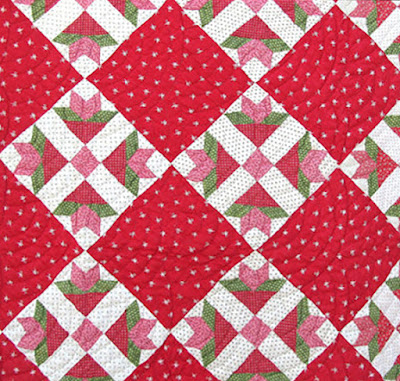

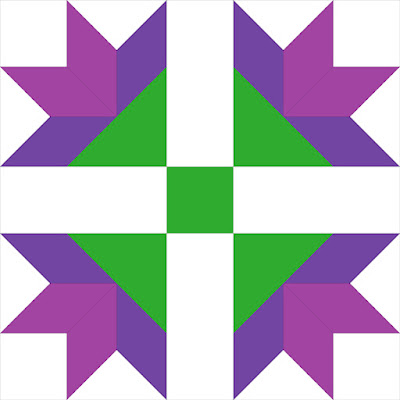
.jpg)


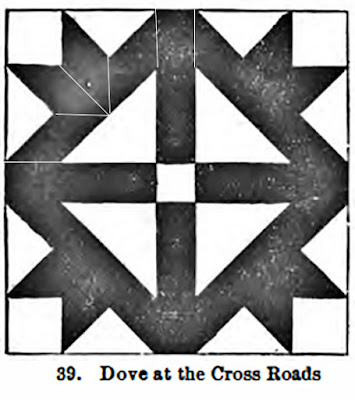






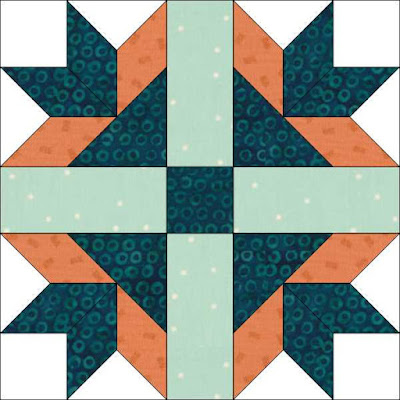

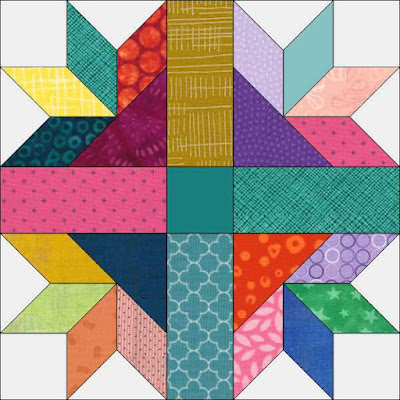





No comments:
Post a Comment